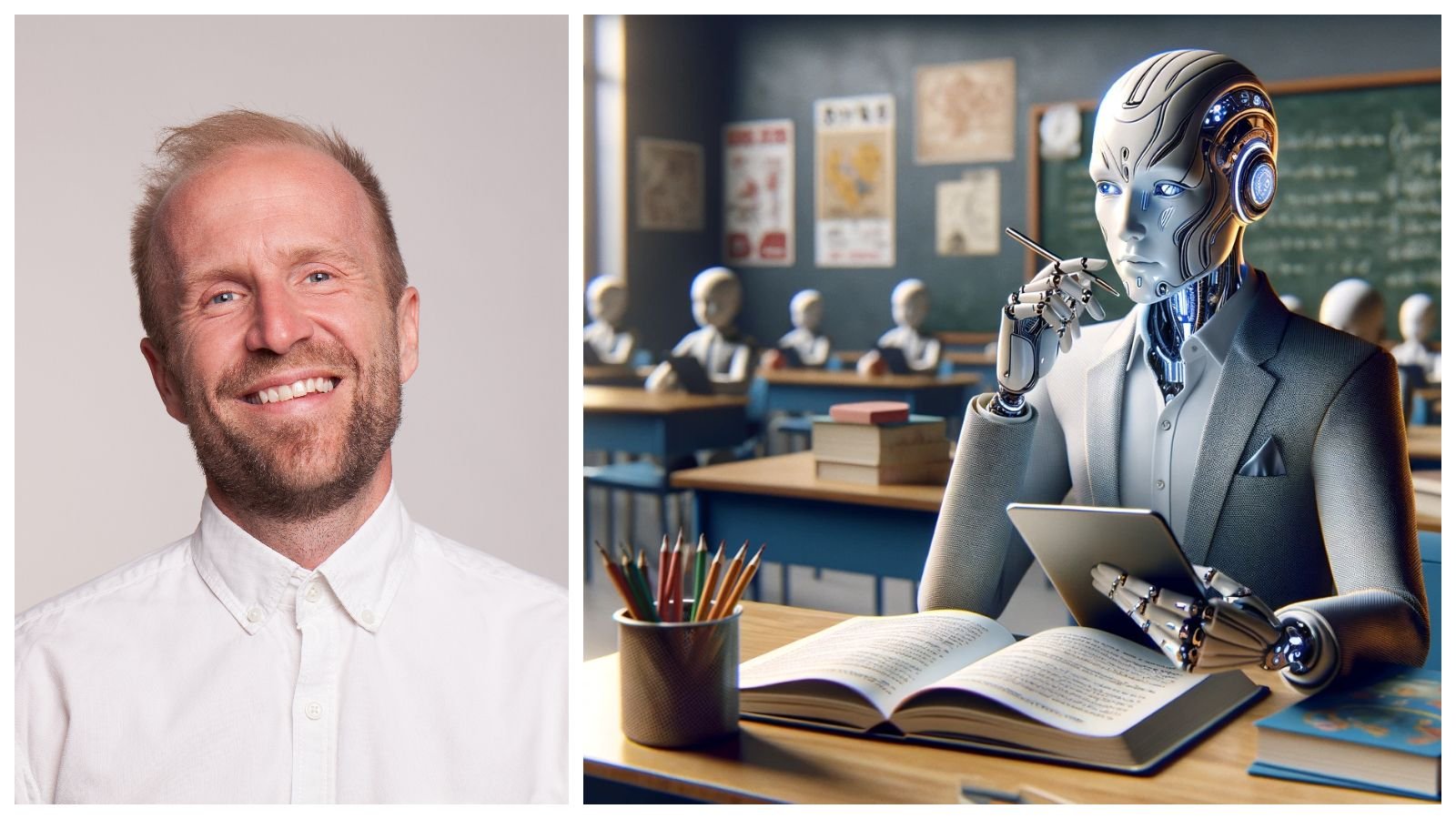Internet algorithms, telephone hotlines or self-driving cars: artificial intelligence (AI) is taking over more and more tasks in everyday life. New technology doesn't stop at school either.
In his lecture “Well with AI – AI as an opportunity in the education sector” Thomas Strasser talks about the opportunities and risks at Lindau. The expert teaches at the University of Education in Vienna. He is trying to connect artificial intelligence to school.
Mr. Strasser, AI will become increasingly important in the future. What skills do schools need in the future?
I often talk about information literacy in my lectures. This is one of the most important skills in the context of artificial intelligence. Teachers and students should begin to ask where the data comes from, where it is located, and what happens to it. I have to critically examine and verify the data.
This will be very important in the context of artificial intelligence. It's about approaching AI critically and reflectively, and not trusting it right away. This is applied information literacy and is actually not limited to artificial intelligence. This was important before.
What risks arise from using AI uncritically?
In times of political election campaigns, for example, AI can create content that never existed in reality. This can feed into some biases and create stereotypical themes. This is very dangerous. In this way, information literacy can also be enhanced through greater emphasis on criticism of targeted sources.
How can AI be used sensibly now?
There are already some exciting tools out there. For example, I find image generators very interesting for learners. For example, if you type a difficult sentence to the AI, it will be visualized immediately, and usually very well. This can help in learning (language). There are also very exciting tools available for teachers.
The goal of AI has never been to answer perfectly.
Thomas Strasser
Teachers can have their own lessons designed and adapted by AI. This makes everyday life as a teacher a lot easier. There is also the option to teach students difficult phenomena such as photosynthesis using an AI-generated explainer video. You enter text into the AI tool and a video is created from it.
Will the future be more about getting AI right?
Yes, this is a major skill shift (editor's note: efficiency shift), if I may put it unscientifically. Agile engineering will become very important. So ask the right questions, adapt the output to your learning objectives, and adjust your rhetorical preferences.
The goal of AI has never been to answer perfectly. This is now the ability for learners to feed the AI more prompts until they get the best result. (Editor's note: “Prompts” are commands that you enter into the AI. When you enter them, it is important to accurately convert the problem into a command.)
Artificial intelligence makes a lot of things easier. Entire theses can be written in just minutes. Where is your contribution then?
There are various universities, such as the University of Prague, which have now canceled the bachelor's thesis. But it is naive to think that artificial intelligence is not used in research. It's about checking and counterfeiting. That's the point. There are now AI-powered research tools that support the scientific writing process through targeted paper searches.
Will teachers then be redundant?
I don't see it that way. For example, I was bad at math. But I had a great teacher who appreciated me and knew how to motivate me even though I wasn't very good.
Artificial intelligence in schools: we have to jump on the bandwagon
Students come into contact with AI very early. There are often big companies behind it, but they don't always have the best intentions. Why you shouldn't be shy about new technology?
The teacher knows the educational history and also personal details. Of course, there are now amazing AI tools that document and analyze the learning process and then create tailored exercises. But we have to talk about the motivational and empathic role of the teacher.
But does this also mean that there will be no schools without AI in the future?
Even more conservative education advocates in Germany or Austria now relatively agree on this. It makes no sense at all to deny this. We have to rethink. AI can be a cheating tool, but it can also be a great creative teaching tool if you use it right.
So, how should schools jump on the bandwagon now?
We need to jump the definition a bit in education and schools. So, step up educationally and don't fire off fireworks on one app after another.
If you are interested in AI, we have different websites for you here:
ChatGPT (chat tool), Stable spread & ideogram (both image generators), com. MagicSchool & Toy (teacher tools), com. simpleshow (explainer video generator)

“Certified tv guru. Reader. Professional writer. Avid introvert. Extreme pop culture buff.”






More Stories
ARKit: This is how Apple's augmented reality technology works
Monport is revolutionizing DIY projects with fiber laser technology
This is how the technology agency Hotwire works in Munich